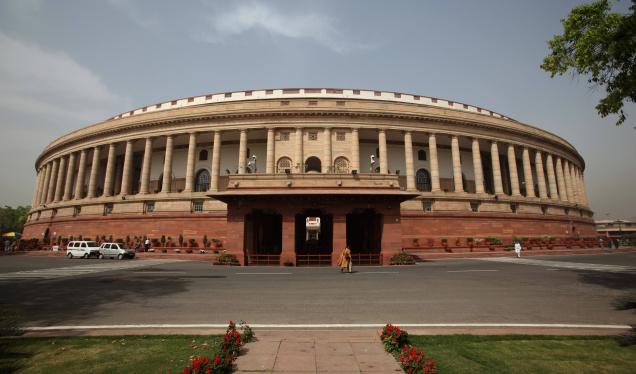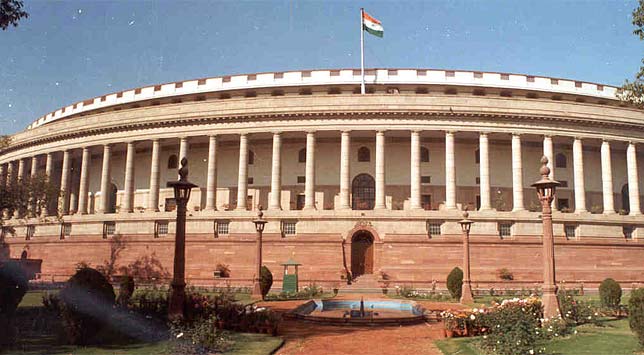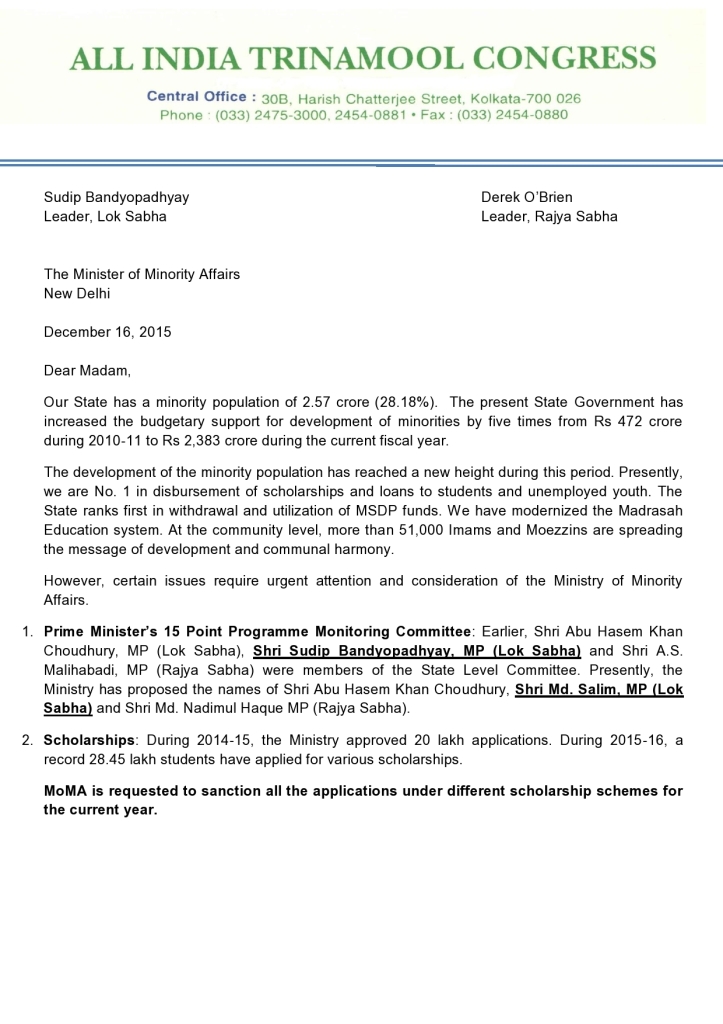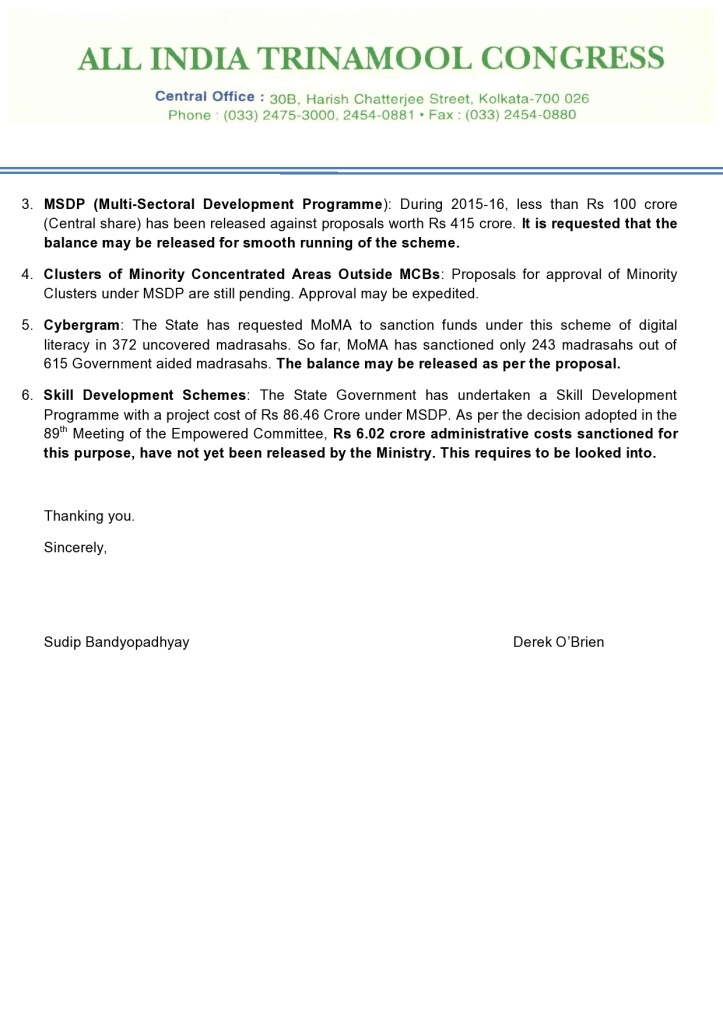As the two so called national parties, the biggest parties in this House, obsess themselves with their petty games and cynical horseplay, I wonder if they have totally lost touch with public opinion. With issues that grip people on the streets, decent citizens who only hope for decency, decorum and sensitivity from their Parliamentarians. Unfortunately it is left to us, the supposedly regional parties, to take this august forum seriously, and urge Parliament to enact laws that India and countless ordinary Indians await so anxiously.
Twenty-eight hours ago, at 11 AM yesterday, things were very, very different, if it wasn’t for the so-called regional parties. On this good moment, I want to be gracious because at the end of it all it is to all our credit that we will pass this law today. And we must do it, keeping in mind that on one side there are child rights activists doing their job and on the other side there might be a lynch-mob mentality, some people say, who are expressing themselves.
Sir, I stand here to support this Bill. Is it a good Bill, a very good Bill, or is it an ideal Bill? Sir, we believe it’s a good Bill. And we also believe we’d rather not wait indefinitely for an ideal Bill. So this is good enough, Sir, for today.
Sir, on a personal note; I have been thinking of this for the last few weeks since the Bill came up here. I have a 20-year-old daughter. God forbid, if 16th of December 2012 was here. How would I – a so-called responsible, educated, law-abiding citizen – have reacted? Would I have made use of the criminal justice system of our country? Or would I have hired the best lawyers to see that the person who perpetrated the crime got the biggest punishment? Or Sir, would I have taken out a gun and shot the person? I say this with all responsibility – I don’t know Sir, but my mind is inclined to have taken out a gun and shot the person.
So this is a very emotional issue. Sir, we cannot even think what’s going on in the minds of the parents of Nirbhaya and I don’t want to even think about it. As I said, before we come to the rational, there is this emotional involvement and I cannot myself give any guarantee what would I have done – I would probably have taken out a gun and shot him.
Sir, law is not to be made for an individual, and please let’s not mix up child’s rights with women’s rights as we debate this law, Sir, this Bill has taken a while, it’s a complex Bill, and I think the Leader of the Opposition was fair enough when he said there many different dimensions to this Bill. And I’ll go with him. Within our party also there was a lot of discussion and I’m sure every party discussed the various dimensions to this Bill; and eventually as I said, Sir, we were on.
Sir, should a law be for reform or for penalty? This is the big issue today. If you look closely at this Bill, you could take the view that this is a law for penalty, if you go to the 16-18; but there are many provisions in this Bill which are law for reform. The Sixteen Principles, as you call it, Madam, or the fundamental purpose of this Act, is reform is first, and penalty is the last resort, if you read this Bill. This is a very important part, Sir.
I want to highlight some of the positives of this Bill –the Juvenile Justice Boards. There a lot of details in this Bill that have been defined, the provisions have been defined. Two states – Odisha and Madhya Pradesh (you are supposed to set one Juvenile Justice Board for every district) – have 100% Juvenile Justice Boards. And there are two states that have more than 100 per cent; both in the east – Bihar and Bengal. All of us need to put good people into those justice boards and make them run well, Sir.
Sir, several new offences against children have been included in this Bill; we welcome it. Militant groups, ragging, disabled children, corporate punishment – all very positive parts of this Bill. Child welfare committees meeting every 20 days per month, that’s very specific, that’s very good, and inspections of institutions and children’s homes. But as my colleague from Samajwadi Part said, you have to make sure this is implemented, otherwise it would be a waste.
Let me speak on the issue of adoption, Sir. Madam Minister, CARA has now become a statutory body, we welcome that. You made the adoption process very transparent but Madam Minister, why did you have to go and take up a fight on October 8 with the poor Missionaries of Charity. Why? You gave a set of rules, they didn’t like your rules, they are an independent organisation, and they stopped their adoption centres. Let us leave it at that, let us respect the work they do.
There were unnecessary statements – you know, you want a uniform secular agenda, that they were converting people without offering conversions – these are all very serious accusations against people who are doing good work. It’s a good clause, but please don’t bring the Missionaries of Charity into it. They have opted out. And being from Calcutta, we are a little more sensitive about these issues.
Madam, two or three speakers before this have also raised it but again, on the 19th of December 2015, either the media misquoted you; this is the quote I have – “I would blame the Rajya Sabha for not passing the law. Had they passed the Bill, he would not have gone scot-free.” I cannot blame you because the media said you said this.
Now Sir, there are a couple of issues, and I would be failing in my duty if I did not bring these up. Sir, juvenile justice has to be set on the foundation of rehabilitation and reform. Now the number for repeat offenders in India is 5%. The number in the US is 17-20%. Sir, I know a lot of child rights activists and they have a point – they are saying in countries like Brazil, Peru, 18 is the limit. So here I think, where we are with this Bill is it is not blank 16-18; there is no blanket approval, so that’s why the role of the juvenile justice system is very, very important. We listened to the child rights activists who talked about brain mapping – do we have enough information about brain mapping and do we keep these children next to these hardened criminals? I think the bigger job, as the JD(U) MP had said, is to make sure that those juvenile homes, et cetera are run very well.
Sir, think about who these people are who are committing these juvenile crimes, and this is a number which goes beyond the statistics. Seventy per cent of these poor children are from families which earn less than Rs 3500 a month. Fifty-two per cent are either illiterate or up to primary level. Sir, we need to work very, very hard. Don’t blame A, don’t blame B, Sir. If our children are becoming criminals, Sir, you and I are responsible. Sir, above all the politics – I had moved, I’m not sure whether I will press, but beyond the political parties, present three amendments, Sir. I’ll address 1, 2, 3, and then I will conclude, Sir.
One is, you say that after three years the child is automatically out of the juvenile justice home. Consider, because there is no magic bullet, that after three years, you will be reformed. Consider changing that number from three (on page 14, line 19) to seven years, to 10 years, to give a little bit of cushion to these poor boys and girls (poor not necessarily in the economic sense, but in the mental sense), to a little more time, and then the Juvenile Justice Board can take a call to push it to three, to push it to seven, because sometimes they need our protection.
The second one is page 34, line 36, Madam. You say that after they pass out, they will be given financial support. Very good. My proposal, Sir, is, and this is beyond the politics, after the word ‘financial’ please add the words, ‘educational, psychological support, counselling support till they are 21 years of age.’ So just giving them financial support won’t do, Sir.
And the last thought I want to leave with this House. Which is the bigger crime – if I sell a child or if I offer drugs to a child? Both, I would think so. But in the bill, if you look closely, there is a different penalty for selling a child – it’s five years – and offering drugs to a child – it’s seven years. If you are saying that’s a mistake, then please accept my amendment, because, you know, five years, seven years, who’s the bigger devil?
Sir, we are here today, as I said at the beginning, not to pass the ideal Bill, not to pass a very good Bill, but to pass a good Bill, and focus on the implementation of this Bill. I am very open not to press for accepting any of these amendments by the House if they don’t want, but if the House considers, one, two or three, or one or two or three, please consider this, Sir. Thank you very, very much. And if I said something in the beginning which hoped to make a political point, I think in the graciousness of this occasion, I would like to complement the Congress Party and the BJP and all of us in the middle to make this happen today.
Thank you, Sir.









